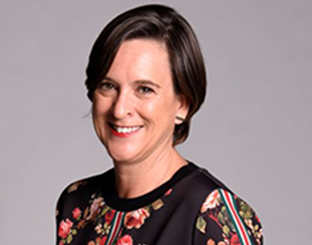Harnessing the power of collective intelligence
After 20 years of experience in different sectors and businesses, Beate Boodoo decided to enroll in the HEC Paris Executive MBA. During the program, she found the inspiration to create CG Circles, a consulting firm that harnesses the power of diverse thought. In this interview, Beate speaks about her career journey, the benefits of collective intelligence and what it means to be a good leader.

Key takeaways from hec paris
Beate gained several key insights from the HEC Paris Executive MBA experience that eventually led her to found CG circles. The first one was a much more in-depth understanding of business functions, and a more holistic view of how business works.
Another key insight was the opportunity to learn through collaboration: “you learn as much from your peers as you learn from the courses,” Beate says. With participants coming from a wide range of professional and cultural backgrounds, peer-to-peer learning plays a key role in the EMBA learning process.
The major in innovation and social business really drove home the importance of the human factor in business. “In business, everything is possible. The approach can be anywhere between one hundred percent capitalistic and one hundred percent social,” she says. “It’s your choice where you want to be and what you want to contribute to the world.”

Cg circles
Beate describes her career path as being somewhat “untypical”. This is primarily due to its multidisciplinary nature: Beate worked as a lawyer before moving on to the French company Foncia, where she took on a range of managerial roles. Adept at picking up new skills to suit changing circumstances, Beate describes herself as a generalist.
HEC Paris not only gave Beate a more technical understanding of businesses, but also inspired the idea for CG Circles. In Executive MBA leadership workshops, participants work in groups to solve a management problem. Beate was struck by the benefits of collective intelligence, and how actively listening to a diverse range of viewpoints enables teams to solve problems more effectively. Beate is convinced that working in this way has a significant impact on business performance.
Collective intelligence
Beate compares collective intelligence to buying a Christmas gift for a close family member or friend. “Every year you wonder what to get,” she says. “However, when you discuss with your friends, you almost always manage to find the ideal present.”
The same concept applies to business. “If you are confronted with a complex situation and cannot find an answer yourself, tap into the intelligence of others,” says Beate. “I guarantee that you’ll find the necessary clarity and most appropriate solution to the challenge you are facing within the group.”
Inclusive leadership
For Beate, collective intelligence is an essential tool for successful leaders. More diverse thinking can help you approach problems from a different angle and ultimately make better decisions. A good
leader not only needs to be curious but also able to integrate these different ways of thinking. “Different ideas and experiences enable growth, and leaders cannot cut themselves off from ideas necessary to meet the challenges of our times,” affirms Beate.
The rich variety of experiences in her career to-date have shaped Beate’s leadership style and taught her to be open to everything she hears and sees. She believes it is, “really important to embrace individual differences and leverage them for competitive advantage,” and that “a diverse thinking team is greater than the sum of its parts.”